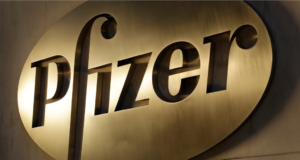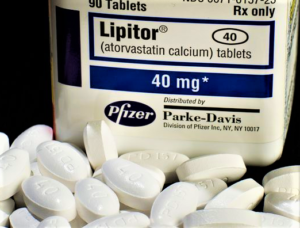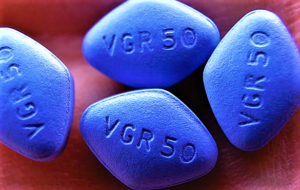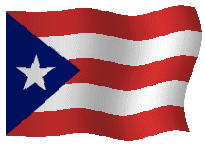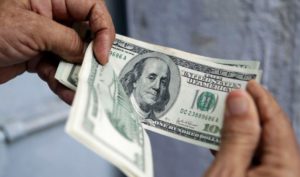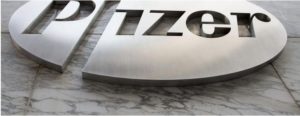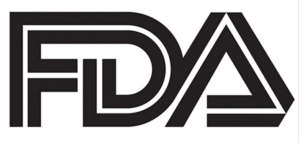- Pfizer joins DOJ probe into claims pharma bribes funded Iraqi terrorists (fiercepharma.com)Veterans' lawsuit claims Big Pharma bribes in Iraq helped finance terrorism (fiercepharma.com)Roche, Johnson & Johnson pulled into Justice Department probe of alleged terrorist bribes (fiercepharma.com)
Pfizer has joined three of its Big Pharma peers in a Department of Justice probe examining allegations that the companies paid bribes to a terrorist-run health ministry in Iraq...The Justice Department's inquiries stem from a lawsuit, filed last fall, in which veterans and their families accused Pfizer, AstraZeneca, Roche and Johnson & Johnson of paying bribes to win business from the Iraqi ministry of health at a time when the ministry was controlled by terrorists...The suit alleges the companies paid bribes to terrorists that "openly controlled the Iraqi ministry in charge of importing medical goods." The plaintiffs contend the drug companies "obtained lucrative contracts from that ministry by making corrupt payments to the terrorists who ran it."
- A costly PBM trick: set lower copays for expensive brand-name drugs than for generics (statnews.com)
When the patent on a brand-name drug expires, and one or more generic versions enter the market, you’d expect consumers to pay less for the generic. That isn’t necessarily the case, thanks to the middlemen known as pharmacy benefit managers...Our research group, led by Khurram Nasir...wanted to figure out how much money had been spent on Lipitor...after generic atorvastatin became available...$2.1 billion could have been saved had Lipitor been replaced with generic atorvastatin...It turned out that Pfizer had partnered with pharmacy benefit managers to ensure that its more-expensive Lipitor had a lower copay than less-expensive generic atorvastatin...it boosted the overall cost of the drug...These shady practices haven’t gone unnoticed...If an employer serves as its own pharmacy benefit manager, it has all the incentive it needs to drive down the costs of drugs for its employees. So it’s no wonder that large employers such as Coca-Cola, Verizon, and IBM, which collectively spend $20 billion a year on health benefits, formed a coalition to devise means to buck the influence of pharmacy benefit managers...
- OTC Viagra: Pfizer snags nod for nonprescription sales of the little blue pill for men in the U.K. (fiercepharma.com)
Pfizer has won a first approval for OTC Viagra. Viagra Connect, the Pfizer OTC name for its blockbuster erectile dysfunction drug, has been approved for sale in the U.K...The Medicine and Healthcare products Regulatory Agency announced...that it will reclassify the 50 mg dose from prescription only to a pharmacy medicine in the U.K. Viagra Connect is expected to be available for sale in the spring of 2018. Anyone seeking to buy the drug will be required to have a discussion with a pharmacist, who will determine whether the drug is appropriate for their use...It will continue to sell branded versions of other doses of the drug in the U.K...In regard to its U.S. OTC ambitions, Pfizer said, in a statement to FiercePharma, “While we do not have information to share on specific Rx to OTC switch programs in the United States, generally we consider prescription drugs—both within the Pfizer portfolio and outside it—for potential switch to non-prescription status. Our objective is to provide consumers with significantly greater access to medicines with well-established efficacy and safety profiles without a prescription.”
- Shortages of drugs and saline reported as Puerto Rico hurricane damage lingers (fiercepharma.com)
Shortages of drugs and saline produced in Puerto Rico are beginning to materialize after Hurricanes Irma and Maria wreaked havoc on production on the island, which produces about 10% of the U.S. drug supply including products like Lipitor and blood thinner Xarelto...Saline solution was already suffering supply restraints before the storms knocked out power to plants across island, affecting saline production at a facility operated by Baxter International...The company, which has said it lost days of production as a result of the storms, has put customers on allocation of sodium chloride and will try to make up for some of that supply by importing saline and glucose from plants in Australia and Ireland...The FDA has said that there are about 40 drugs manufactured in Puerto Rico, 13 of them exclusively, and that shortages of some of those will be materializing within days. The storms knocked out power, and while manufacturers have backup generators, they could be without commercial power for months. Most of the facilities that have resumed production, maintain only partial operations…
- Swiss, German drugmakers join U.S. price freeze (reuters.com)
European drugmakers Roche, Bayer and Merck KGaA became the latest companies to freeze prices in the United States for the rest of 2018 following criticism by President Donald Trump over the cost of medicine...Roche did boost U.S. prices for nine key drugs by an average of 3 percent on July 1, but said it would hold off additional increases as discussions with the Trump administration continue over a longer-term solution to containing healthcare costs...The European announcements on Friday follow similar moves from Novartis, Pfizer and U.S. drugmaker Merck.
- ‘One whiff and you’re stiff’: The Irish village where smoke from the local Viagra factory puts a spring in their step welcomes news the little blue pill will now be available over the counter (dailymail.co.uk)
Locals in a tiny Irish village where Viagra has been manufactured for 20 years are laughing off potentially stiff competition from Britain...Men in need of the drug will soon be able to purchase the little blue over the counter, following a public consultation by the UK Medicines and Healthcare products Regulatory Agency...But villagers from Ringaskiddy, Cork - where Pfizer manufacture a key ingredient used in Viagra - have met the news with amusement...Barmaid Debbie O'Grady told The Sunday Times: 'One whiff and you're stiff. We've been getting the love fumes for years now for free', she told The Daily Telegraph, referring to smoke emanating from one of the factory's chimneys...Ms O'Grady's mother, Sadie, even said that living in Ringaskiddy is a blessing for some men who suffered 'with problems in that department', adding that there is 'something in the air'.
- Pfizer in fight with states over their intent to use its drugs for executions (fiercepharma.com)
Pfizer is in a tug of war with several states that intend to use some of its drugs to carry out executions...The drugmaker sent letters last month to both Nevada and Nebraska asking for the return of drugs, which include the sedative diazepam and the opioid painkiller fentanyl, if the states intended to use them for executions...The company said it would reimburse the states...Nevada has already indicated it does not intend to return the drugs, which the state obtained from wholesaler Cardinal Health...“We have communicated to the Departments of Correction in the 31 states permitting use of lethal injection for capital punishment that Pfizer strongly objects to the use of its products as lethal injections for capital punishment. We have asked all such states to return any Hospira or Pfizer manufactured Restricted Product in their possession and provided them with procedures to follow in return for a full refund.”...Nevada, in its first execution in 11 years, wants to use an execution cocktail containing the never-before-tried combination of diazepam, fentanyl and the muscle paralytic cisatracurium...Last week's scheduled execution was delayed while the state supreme court reviews the matter after a state judge rejected the prison system's intent to use cisatracurium in the lethal cocktail. The state attorney general is appealing that decision.
- Pfizer wins appeal against CMA fine over epilepsy drug price (pharmaceutical-technology.com)
...Pfizer has won its appeal in the UK’s Competition Appeals Tribunal against a £84.2m ($111.6m) fine imposed by the Competition and Markets Authority for dramatically increasing the price of its epilepsy drug, Epanutin...Following a three year investigation, the CMA ruled in 2016 Pfizer and its distributor Flynn Pharma had abused their dominant market position by raising the price of Epanutin from £2.83 per pack of capsules to £67.50, which represents more than a 2,000% increase. Annual NHS spending on the drug increased from £2m in 2012 to £50m in 2013...Philip Marsden, the CMA’s chairman...said the companies had “deliberately exploited” the generic product loophole that allowed the price increase...“Businesses are generally free to set prices as they see fit but those holding a dominant position should not abuse this situation and set prices that are excessive and unfair. There is no justification for such rises when phenytoin sodium capsules are a very old drug for which there has been no recent innovation or significant investment.”...The CTA declared that...CMA had not applied the correct legal tests to assess whether the price rise was excessive and had failed to consider the correct price for the product and take into account other comparable products
- Stakeholders Comment on FDA Draft Guidance for Evaluating Biosimilarity (biopharminternational.com)
Biopharma majors are among the industry stakeholders who have commented and raised questions about FDA’s recently proposed draft guidance for analytical assessment of similarity in biosimilars...On Dec. 4, 2017, a final round of comments from industry stakeholders who raised questions over FDA’s draft guidance, “Statistical Approaches to Evaluate Analytical Similarity,” about how to conduct analytical evaluation of similarity in biosimilars, was published...Several biopharma majors were among the commenters, including Amgen, Boehringer Ingelheim, Genentech, a Roche company, Novartis, Pfizer, Sanofi, and Shire. Other industry stakeholders include the Association for Accessible Medicines, the Biosimilars Forum, and the Biotechnology Innovation Organization...FDA introduced the draft guidance in September 2017, which specifically describes the type of information that sponsors of proposed biosimilar products should obtain regarding the structural/physicochemical and functional attributes of the reference product. In addition, the guidance describes how that information can be used in the development of an analytical similarity assessment plan for the proposed biosimilar, as well as recommends the statistical approaches for evaluating analytical similarity.
- Veterans’ lawsuit claims Big Pharma bribes in Iraq helped finance terrorism (fiercepharma.com)
Pharma companies have faced a gamut of allegations over the years, but a new lawsuit ups the ante by alleging several drugmakers paid bribes in Iraq that helped fuel terrorism...the lawsuit alleged that top pharma companies Pfizer, Roche, Johnson & Johnson and AstraZeneca paid bribes to secure healthcare contracts in Iraq. Those payments ultimately supported terrorism that hurt or killed U.S. service members...More than 100 veterans or their family members are suing the drugmakers under the Anti-Terrorism Act...The lawsuit said the "terrorist-finance mechanism was straightforward: the terrorists openly controlled the Iraqi ministry in charge of importing medical goods, and defendants—all of which are large Western medical-supply companies—obtained lucrative contracts from that ministry by making corrupt payments to the terrorists who ran it."

